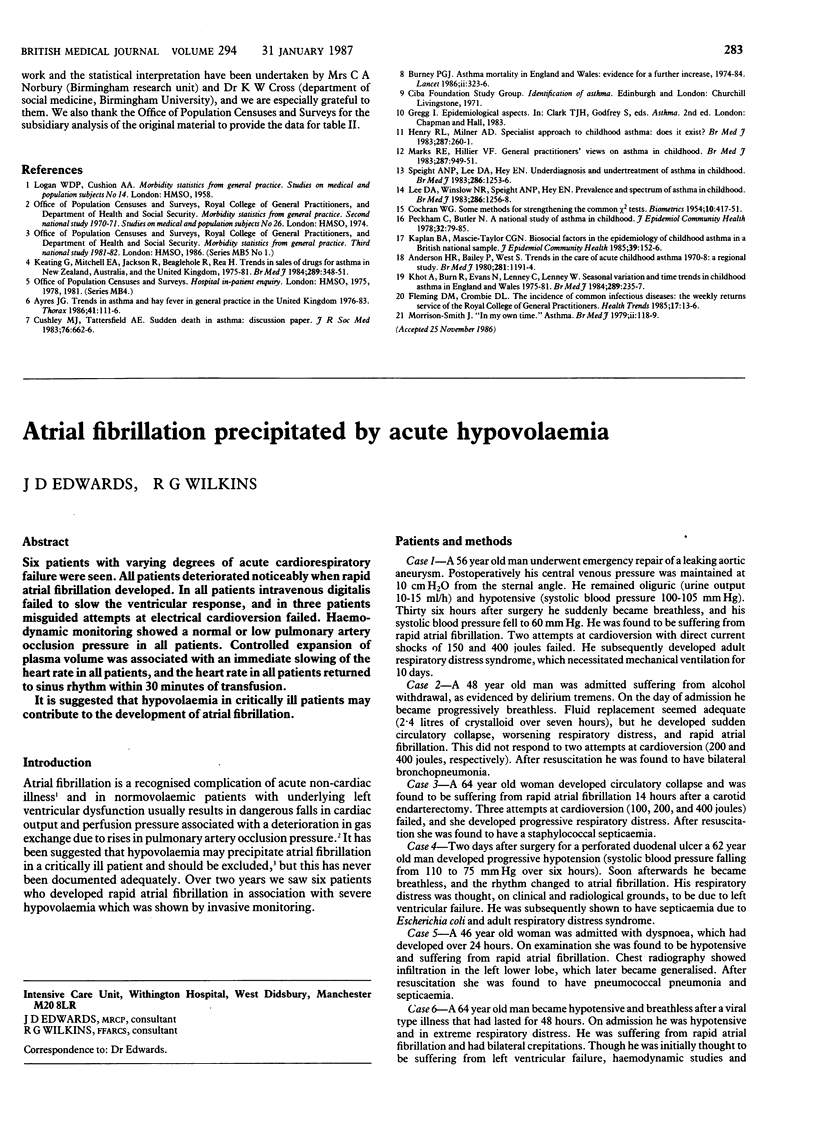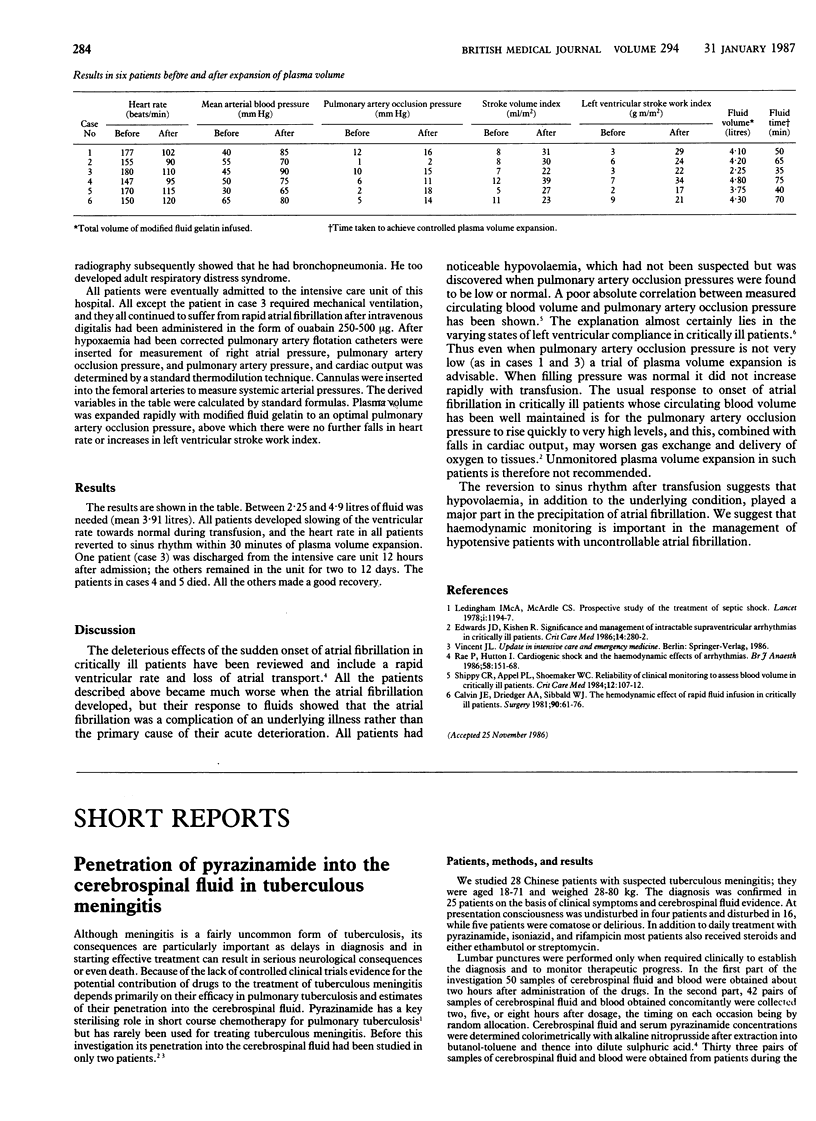Abstract
Six patients with varying degrees of acute cardiorespiratory failure were seen. All patients deteriorated noticeably when rapid atrial fibrillation developed. In all patients intravenous digitalis failed to slow the ventricular response, and in three patients misguided attempts at electrical cardioversion failed. Haemodynamic monitoring showed a normal or low pulmonary artery occlusion pressure in all patients. Controlled expansion of plasma volume was associated with an immediate slowing of the heart rate in all patients, and the heart rate in all patients returned to sinus rhythm within 30 minutes of transfusion. It is suggested that hypovolaemia in critically ill patients may contribute to the development of atrial fibrillation.
Full text
PDF

Selected References
These references are in PubMed. This may not be the complete list of references from this article.
- Calvin J. E., Driedger A. A., Sibbald W. J. The hemodynamic effect of rapid fluid infusion in critically ill patients. Surgery. 1981 Jul;90(1):61–76. [PubMed] [Google Scholar]
- Edwards J. D., Kishen R. Significance and management of intractable supraventricular arrhythmias in critically ill patients. Crit Care Med. 1986 Apr;14(4):280–282. doi: 10.1097/00003246-198604000-00005. [DOI] [PubMed] [Google Scholar]
- Rae A. P., Hutton I. Cardiogenic shock and the haemodynamic effects of arrhythmias. Br J Anaesth. 1986 Feb;58(2):151–168. doi: 10.1093/bja/58.2.151. [DOI] [PubMed] [Google Scholar]
- Shippy C. R., Appel P. L., Shoemaker W. C. Reliability of clinical monitoring to assess blood volume in critically ill patients. Crit Care Med. 1984 Feb;12(2):107–112. doi: 10.1097/00003246-198402000-00005. [DOI] [PubMed] [Google Scholar]



